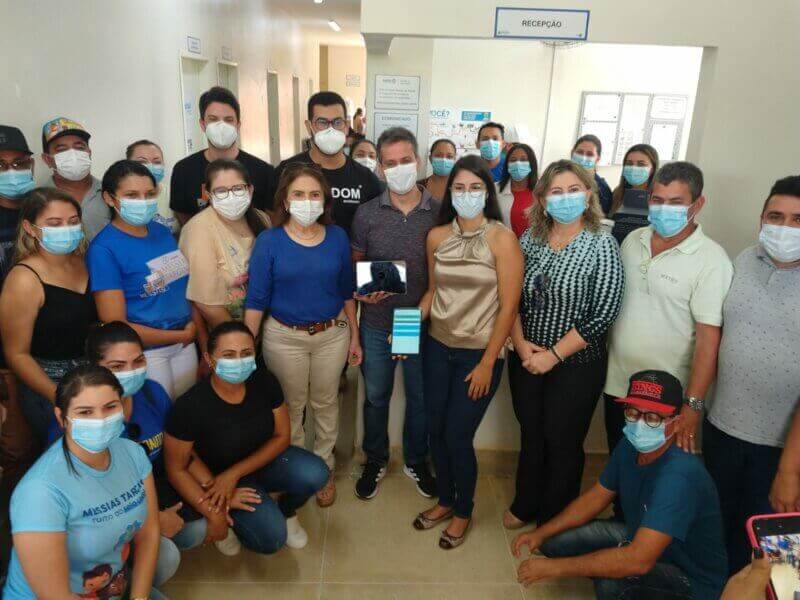By Dênia Cruz – Ascom LAIS
On Wednesday (June 29), the municipality of Messias Targino, in the Midwest region of Rio Grande do Norte, received researchers from the Laboratory for Technological Innovation in Health (LAIS/UFRN), who delivered the first piece of equipment for the OSSEUS project, a prototype that performs screening tests for cases of osteoporosis in the population in a preventive way, avoiding highly complex exams. The population assisted in primary health care in the municipality will benefit directly.
The research project under development is a partnership with the Advanced Technological Innovation Center of the Federal Institute of Education, Science, and Technology of RN (NAVI/IFRN), and is being applied in a pioneering way in the municipality in the interior of the state.
The town’s mayor, Shirley Targino, highlights the pioneering nature of the project in her town and the importance for health management in that locality. “It is a unique opportunity to work this in primary care, for the diagnosis of osteoporosis in a preventive way, and this is very important for the work of family health,” she said.
In the occasion, the health teams were also trained to immediately use the equipment in tests with the population. The LAIS team in this training was represented by researchers Dionísio Carvalho and Gabriela Albuquerque.
For researcher Dionísio Carvalho, this moment is fundamental for the improvement of the equipment. “We now need to verify the data that will be collected in the health unit’s routine, and from there apply it to the next equipments so that they become more assertive in the diagnoses”, he highlights.
OSSEUS Project
OSSEUS project is carried out by NAVI/IFRN in partnership with LAIS, and also validated by researchers from the Massachusetts Institute of Technology (MIT), in the United States.
OSSEUS, equipment for performing preventive exams that allow for the diagnosis of osteoporosis, is a portable, easy-to-operate, low-cost device, providing scalability and potentiating its use in any basic health care unit in Brazil. The exam performed by OSSEUS is non-invasive and can be applied in shorter time intervals, because there are no side effects for patients, unlike other traditional methods.





